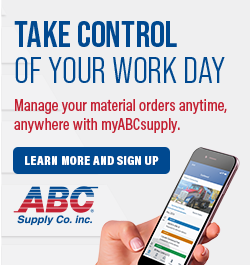World Class in Safety – Part One

By John Kenney, Cotney Consulting Group.
Learn more about what it means to achieve world-class levels of performance in safety.
Many companies claim they have achieved world-class levels of performance in safety. What do they mean by world-class in safety? Let's look into what they mean by this claim of having achieved world-class safety system performance or status. For most companies, the objective is to achieve world-class safety performance. To better understand this goal, we need to understand what defines a world-class safety system, performance or status. Defining in general terms can mean different things to different people and is subject to interpretation.
For this article, we will see the world-class safety vision excelling in operational excellence derived from focusing on the relationship between people, equipment, and technology. A company must demonstrate exceptional and industry-leading safety performance supported by the proper personnel, in the right roles, for safety stewardship. They must possess the right attitude and aptitude for doing the job. They must also inspire engagement in safety for their coworkers. All levels of your organization must demonstrate a strong safety culture and commitment to superior safety performance. You must recognize safety as a core value and provide systems, processes and technologically advanced solutions to deliver exceptional safety performance. Your company safety performance exceeds your peers involved in the roofing industry.
How do you start the process of becoming a world-class leader in safety? The vision must be clear to all stakeholders in your organization, both internally and externally. Your vision should be spelled out in terms of achievable targets and broken down into SMART goals, meaning these goals must be:
- S — Specific
- M — Measurable
- A — Achievable
- R — Realistic
- T — Traceable, and time-bound
World-class safety performance and standards are achieved over time and require dedicated efforts from all your employees and the subcontractors you use.
It is important to note that world-class safety performance and standards are industry specific. Some industries, like ours, are riskier than others. Technology and capital investment also play a significant role in achieving safety performance and becoming a world-class safety organization. Lowering the inherent risks associated with our industry will take a long-term committed cash investment and adopting technological advances in safety. This commitment will reduce the reliance on manual processes, which depends on procedures and work practices to manage risks, which are more prone to human errors and weaker safety performances.
Safety vision
Your safety vision should be part of your larger or overall corporate goals. The vision sets the direction for the organization, while the mission establishes how the organization gets there. Your vision should be considered the destination, while mission statements are the route and journey to take your company to that destination.
It is important to note that your organization's vision should rarely change over time and is a long-term attainable goal. Your mission can change consistently with your company's business environment and circumstances. Generally, your organization's senior leaders will establish the corporate vision. On the other hand, strategic leaders, managers, frontline supervisors and site project workers execute the mission and strategic plans that move the company toward its vision.
Visions should energize and inspire the hearts of all employees. A vision statement must give people the courage to get on board and challenge the most difficult situations to achieve this vision. When companies establish vision-led cultures, they will perform better than their peers without such cultures in the results of annual net income growth and higher capital investment returns.
A health and safety vision will encourage similar safety performance improvements among companies. Coupled with the right mission steps that were continually improved each successive year, you will be able to constantly improve your safety performance for employees and subcontractors each consecutive year.
Safety Management System
Safety Management Systems (SMSs) are developed to ensure the health and safety of workers. An SMS should generally address the health and safety requirements for protecting people, the environment, and assets.
There are direct and indirect benefits to an effective SMS. Companies that embrace SMSs see this approach to managing safety as an investment in the organization's profitability rather than other companies that see an investment in safety as a cost and an obligation to their workers.
An SMS aims to reduce injuries and preserve the environment and protect lives. Many businesses recognize an effective SMS as essential for remaining in business. Employers recognize that the health and safety of their workers and the preservation of the environment and assets are elements of an effective corporate responsibility program. In short, a Safety Management System adds to the profitability and sustainability of a company. It simply is a good business practice to have an effective SMS.
A Safety Management System provides the framework and road map by which your company can systematically improve its safety performance sustainably. Once you establish the framework with the key elements of the SMS and standards for each essential component, your employees will better understand how your business is expected to function, consistent with each component or standard.
The road map starts with educating the why that is necessary to adhere to the conditions, policies, and procedures outlined in your SMS. Once answers to "why" is provided, it is easier to gain acceptance and buy-in from the entire team. Another key benefit of an SMS is that it defines the roles and responsibilities of key project stakeholders, and the roles and responsibilities of senior leaders, managers and frontline supervisors on the tools workers and subcontractors need are clearly defined.
In Part Two of this multi-part series, we will discuss the elements of a safety management system and the implementation of an SMS.
Learn more about Cotney Consulting Group in their directory or visit www.cotneyconsulting.com.
About John Kenney
John Kenney is the Chief Executive Officer at Cotney Consulting Group. Prior to starting Cotney, John had 45 years of experience in the construction industry. John began his career by working as a roofing apprentice at a family business in the Northeast. Because of his skill and hard work, he progressed from roofing laborer to foreman, estimator, chief estimator, Vice President, and Chief Operating Officer with his various companies. John has worked for multiple Top 100 Roofing Contractors and is intimately familiar with all aspects of roofing production, estimating, and operations. In his last role, John was responsible for the daily operations and performance of a large commercial roofing contractor. During his tenure, John ran business units associated with delivering excellent workmanship and unparalleled customer service while ensuring healthy net profits for his company.






















Comments
Leave a Reply
Have an account? Login to leave a comment!
Sign In